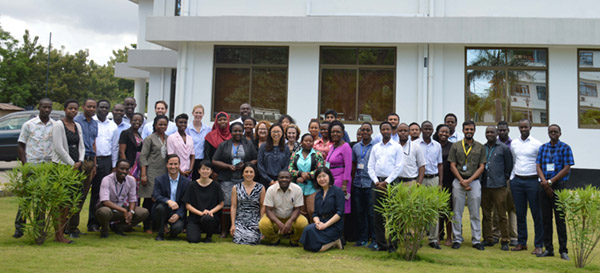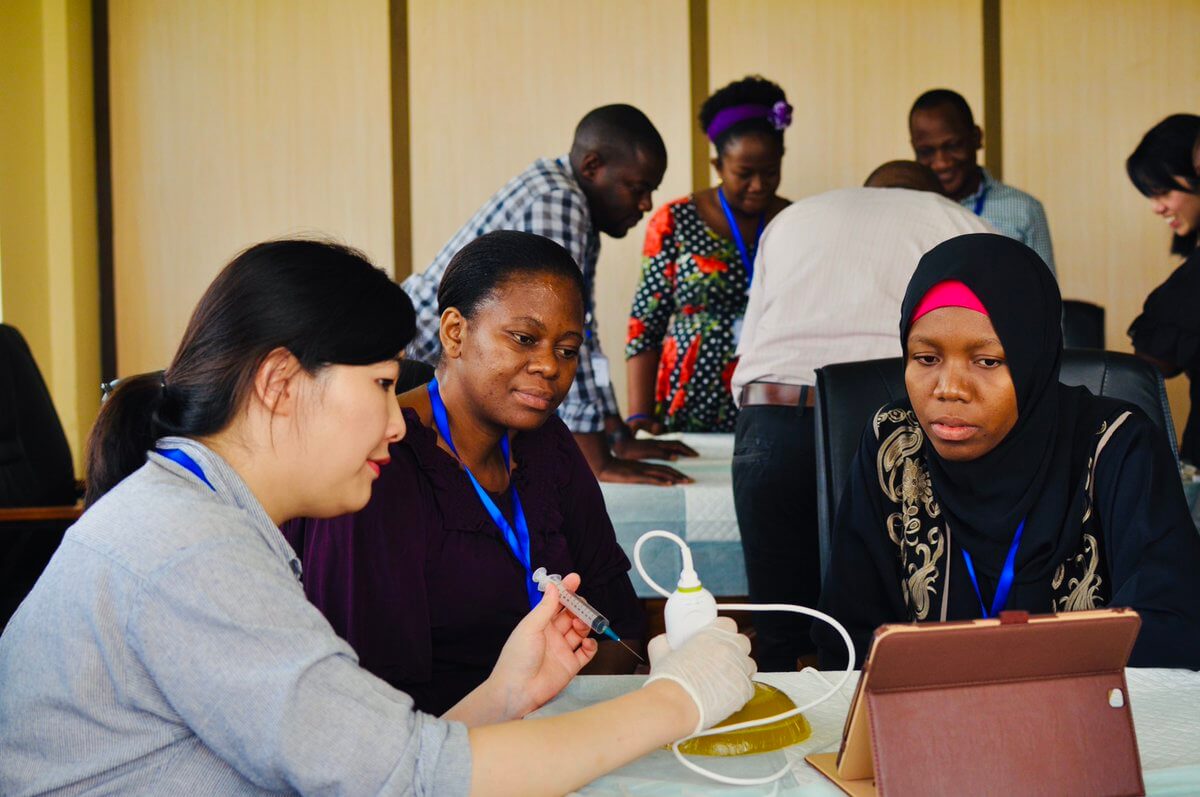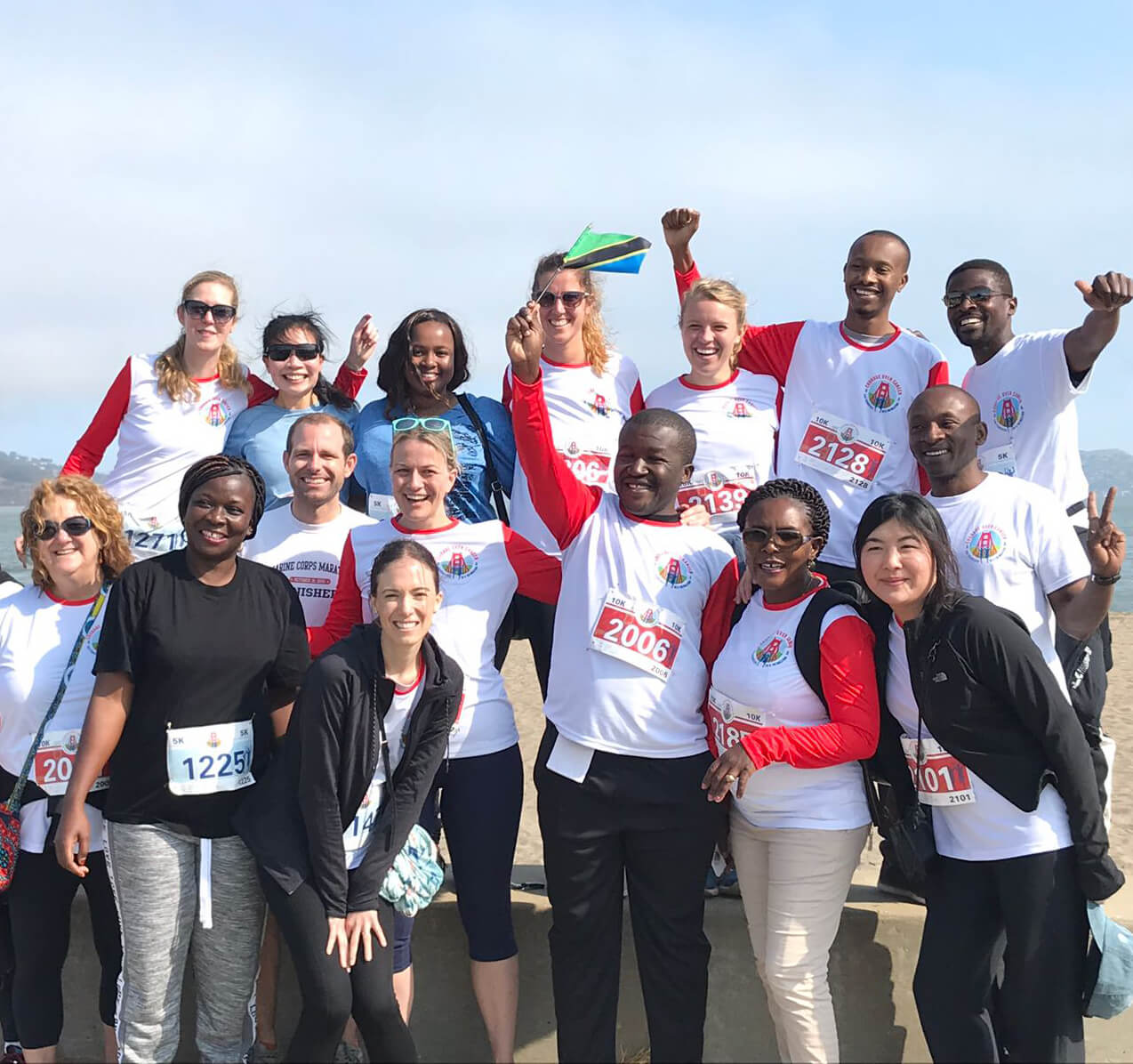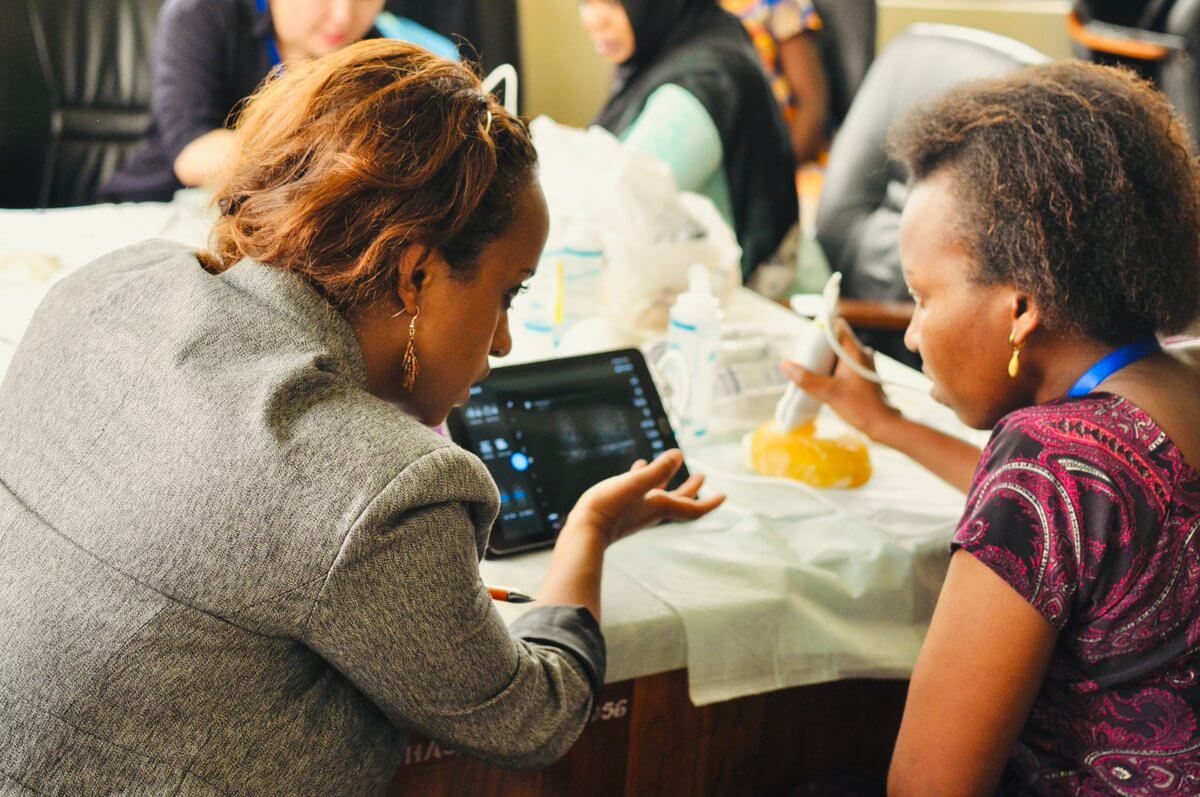UCSF Radiologists Collaborate in Tanzania

The cancer burden in sub-Saharan Africa is growing. In Tanzania, the number of new cancer cases doubled between 2006 and 2013 alone. In high-income countries, major progress has been made in the fight against certain cancers (like breast cancer) through prevention, early detection, and therapeutic improvements. However, lack of infrastructure, limited access to treatments, and shortages of healthcare providers in low- and middle-income countries (LMICs) have caused substantial inequalities in cancer morbidity and mortality compared to wealthy nations. In 2005, UCSF began a partnership with Muhimbili University of Health and Allied Sciences (MUHAS) in Tanzania with funding from the Bill & Melinda Gates Foundation to support health workforce education and development. Since then, this institutional partnership has expanded to include cancer research and has led to formalization of a multi-disciplinary collaboration between UCSF, MUHAS, and Ocean Road Cancer Institute (ORCI, the national referral center for cancer care in Tanzania) focused on cancer.
The UCSF Global Cancer Program, a priority initiative of the UCSF Helen Diller Foundation Comprehensive Cancer Center (HDFCCC), is led by Katherine Van Loon, MD, MPH, program director, and Brie Purcell, MPH, program manager. Dr. Van Loon is a medical oncologist and associate professor of Clinical Medicine who began cancer research collaborations with MUHAS in 2011. Through the Global Cancer Program, she now leads HDFCCC partnerships and collaborations in LMICs and supports cancer-related research, training, and capacity-building efforts of UCSF and LMIC faculty and trainees. The mission of the Global Cancer Program is to reduce the global cancer burden through innovation, education, and collaboration. The following themes best describe the objectives of the Global Cancer Program:
- To perform innovative research that addresses the disparate burden of cancer in LMICs.
- To provide education, research training, and mentorship for trainees and early career faculty in LMICs and at UCSF focused on global cancer research.
- To foster collaborations between UCSF and healthcare systems in LMICs to sustainably impact the global cancer burden.
Amie Lee, MD, assistant professor of Clinical Radiology at UCSF, is a member of the UCSF Global Cancer Program faculty and leader of Global Cancer Program radiology collaborations in Tanzania. In 2017, under the leadership of Dr. Van Loon and Elia Mmbaga, MD, PhD, the Global Cancer Program and MUHAS co-hosted a week-long meeting of stakeholders in Dar es Salaam, Tanzania, formally launching the MUHAS-ORCI-UCSF Cancer Collaboration across multiple disciplines. Ten UCSF faculty across a variety of specialties participated in a collaborative needs assessment to identify priorities for collaboration, with Dr. Lee representing radiology. The meeting highlighted a need for cancer research training and mentorship, and since then, partnerships and projects have been launched across specialties including pathology, radiology, oncology, nursing, and surgery.

Since 2017, Dr. Lee has been involved in breast imaging research and capacity building partnerships with the radiology department at MUHAS and the Muhimbili National Hospital (MNH) in Dar es Salaam. In Tanzania, approximately 80% of women with breast cancer are diagnosed at an advanced stage (III or IV), when treatments are much less effective and mortality is high. Lulu Sakafu, MD, MMeD RAD, is leading a study investigating the extent and factors involved in the delay between symptom onset and diagnostic imaging evaluation of breast cancer in Tanzania. Dr. Sakafu’s project, entitled “Evaluation of Factors Related to Delay in Imaging Presentation of Women with Breast Cancer in Tanzania” was awarded UCSF-MUHAS Cancer Collaboration Pilot Award funding. Co-investigators include Dr. Flora Lwakatare (head of MNH Radiology) and Dr. Lulu Fundikira (head of MUHAS Radiology). Dr. Lee serves as a UCSF co-investigator and research mentor.

In August 2018, seven faculty from MUHAS and ORCI, including Dr. Sakafu, came to UCSF for a five-week clinical research training, made possible by grant funding from CRDF Global. The faculty participated in the UCSF Training in Clinical Research program Designing Clinical Research course and in research topic seminars, clinical observation, and weekly research mentorship meetings with UCSF faculty. At the end of the training, each visiting faculty member developed a protocol to implement upon his/her return home. During this program, Dr. Sakafu also participated in extensive clinical observation with Dr. Lee in the UCSF breast imaging section, and she is now leading the efforts in developing a breast imaging clinical program in Tanzania.
In addition to research partnerships, the Global Cancer Program is involved in clinical education and training efforts. Led by Dianna Ng, MD, assistant professor of Pathology at UCSF, MUHAS and UCSF jointly hosted a three day Ultrasound-Guided Fine Needle Aspiration (FNA) Biopsy Workshop in Dar es Salaam in 2017, with course instructors Ronald Balassanian, MD (Pathology) and Dr. Lee (Radiology). The efficacy of this first course was recently published in the Journal of Global Oncology. In January 2019, the team returned to teach a second course, with Tatiana Kelil, MD, assistant professor of Clinical Radiology in the Breast Imaging section, also participating as a course instructor. From MUHAS, course directors included Dr. Edda Vuhahula from the Department of Pathology and Dr. Sakafu from the Department of Radiology.

To learn more about the UCSF Global Cancer Program, please visit their webpage.
